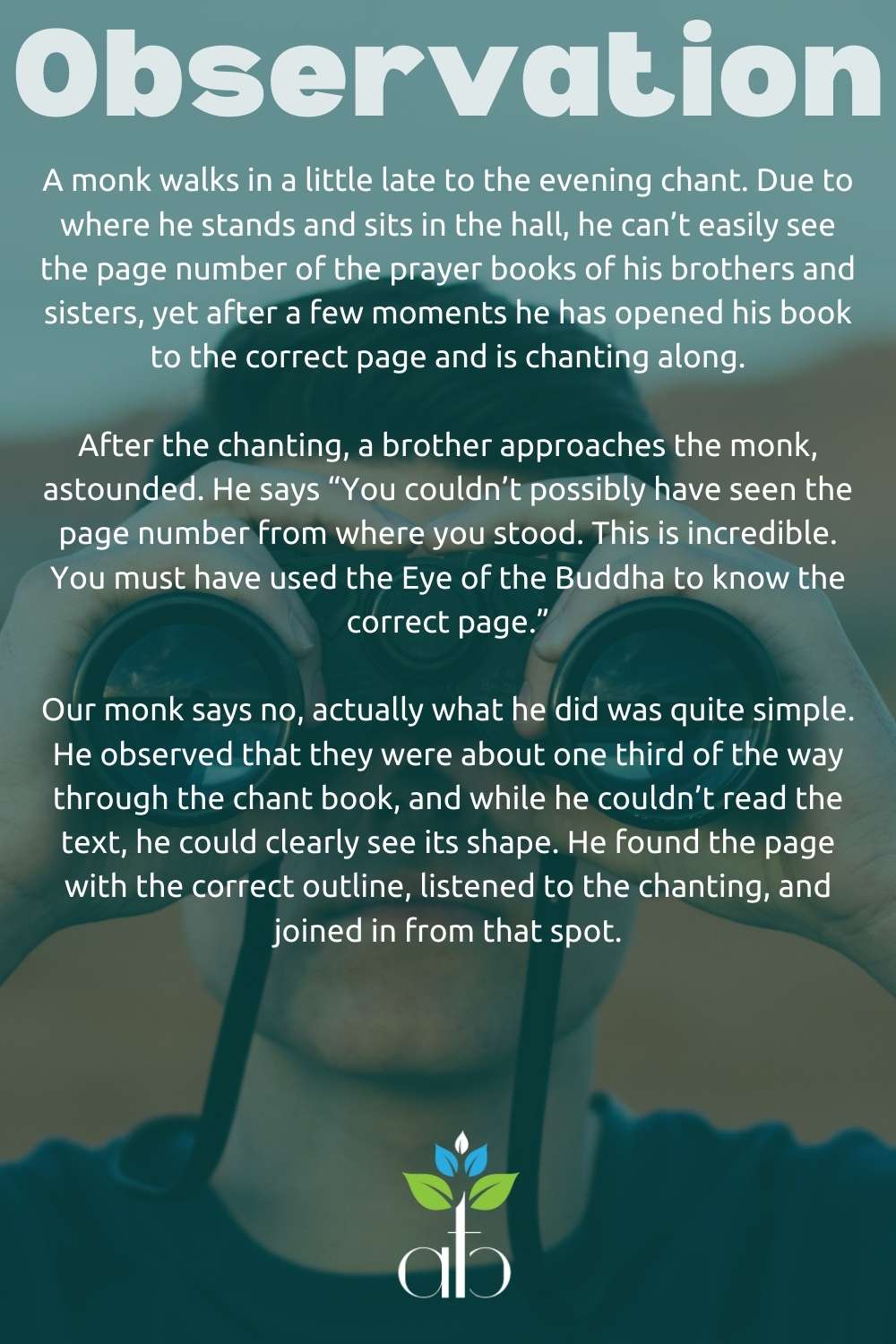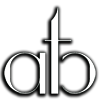Episode 175
Attention is Power

In one fable from business, a Chinese man and a man from the United States meet to discuss a potential deal. The American man presents his case with great enthusiasm, explaining all the elements and trying to sell the Chinese fellow on the benefits. The Chinese simply waits patiently, listens and says “Yes.”
By the end of the meeting, the American has the impression that he was in control the whole time. Yet the Chinese is the one who leaves with a lot more understanding and knowledge.
Many things are revealed to us, when we exercise observation and discernment, as in this story from a Monk Friend:
A monk walks in a little late to the evening chant. Due to where he stands and sits in the hall, he can’t easily see the page number of the prayer books of his brothers and sisters, yet after a few moments he has opened his book to the correct page and is chanting along.
After the chanting, a brother approaches the monk, astounded. He says “You couldn’t possibly have seen the page number from where you stood. This is incredible. You must have used the Eye of the Buddha to know the correct page.”
Our monk says no, actually what he did was quite simple. He observed that they were about one third of the way through the chant book, and while he couldn’t read the text, he could clearly see its shape. He found the page with the correct outline, listened to the chanting, and joined in from that spot.
Hosts & Guests
Kurt Robinson
Transcript
Let’s talk about how attention is power.
A lot of people talk about differences between the east and the west.
Of course one of the differences is sometimes you might notice if you’re hanging out with east asians, someone from Korea or China.
They’ll say “Yes, yes” and some might think that they agree but a lot of the time it doesn’t. It just means they are understanding what you are saying.
So you have this situation where a Chinese businessman and a businessman from the US go to a meeting.
The businessman from the US is a typical gringo and comes in with a lot of bluster saying all these things.
He has so much to say and explains his whole positions and plans while meanwhile the Chinese man is saying “Yes, Yes” carefully.
What happens at the end of the meeting?
The American walks out with the same amount of knowledge he came in with and the Chinese man walks out with a whole bunch of new knowledge.
The American might think he is controlling things but he is actually yielding in some certain sense.
I was at a party once this pool party and a fellow I met Charles took of his shirt and jumped in the pool. And I asked Charles “what’s that tattoo on your chest mean?”
He said “A lot of people ask me that, what do you think it means?”
Let’s see. It looks like the eye of Horus with a crown on top. The eye represents deception and the crown represents something regal, something we should value.
So this means perception is king or very important. The way we see things is key.
He was astounded and asked “How did you know that? How did you figure that out?”
So many people have asked him that and had no idea what it meant.
I said “I pay attention, that is what I do. I observe and interpret what I observe.”
There’s an interesting book on the subject called Read em and Reap by an FBI agent and I think he also worked with Annie Duke the card player.
Of course in poker as in federal investigations, observations are very important. This fella talks about noticing things in the neighborhood. Maybe one side of the house has grass that is much greener than on the other side and you wonder what caused that.
And you form a hypothesis: perhaps there’s a leaky pipe on the side of the house that causes the grass to be greener.
Or some other. You might not test them, in some you do.
By having this power of observation we can do this, almost magically.
Another example, my monk friend arrived to a prayer meeting. From the way he walked in, he couldn’t just walk in and see the page number. So he didn’t know where they had got to.
So he looked over and somehow turned to the correct page and followed along.
Later his fellow monk that who’s book that this monk friend had seen. He said “How did you do that? You must have the eye of the Buddha or something”
And my monk friend said no, what I did is quite simple. What I did is I looked at how far you were in the chant book and I listened and I tried to get a feel for which part you were at. I turned to about 1/3 away through and found that.
All he did was observe and exercise discernment.
So simple, so powerful.
How many things and opportunities might you notice and observe around us and attempt to notice it not in a way where our mind gets carried away or obsessed about it. Well maybe occasionally but where we try to ask what our observations might mean.
How can we increase our understanding of the world with this new data that we have?
Some people even tell me that by looking at the stars you can read sacred knowledge or by looking at an assortment of stones you can understand more about the universe.
But the principle is true, you can examine it and use your own discernment and observation to determine if it’s true.
And that’s the beautiful thing about it.
Thank you for being aware of your surroundings.
Thank you for developing your wisdom every day by noticing what’s around and forming a greater understanding of the world around you.

New Episodes Every Weekday
11am Mexico City time
10 min episodes Monday - Thursday
1 h interview episode on Fridays
As an Amazon Associate I earn from qualifying purchases.
Stay Beautiful &
Stay Connected
